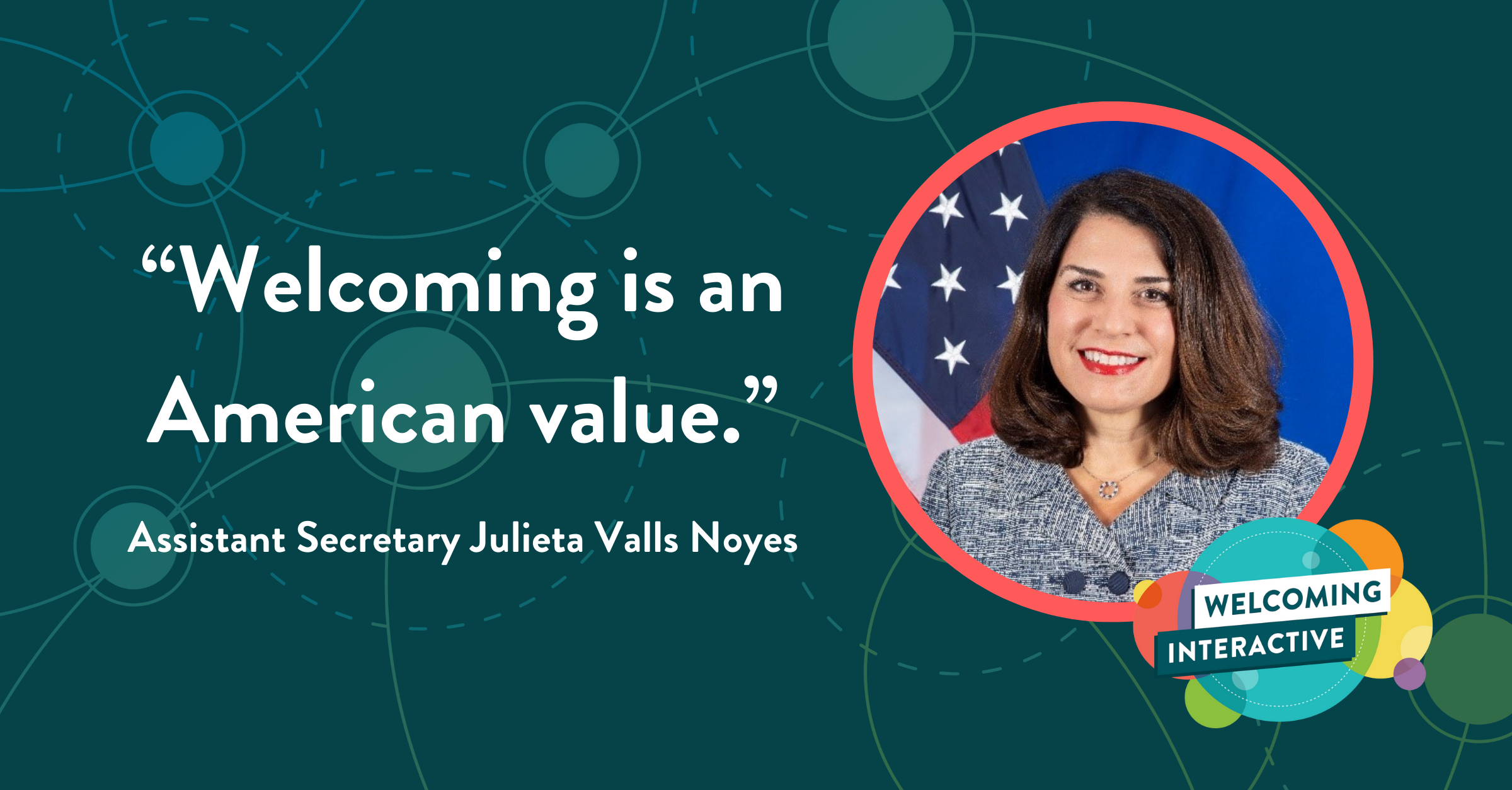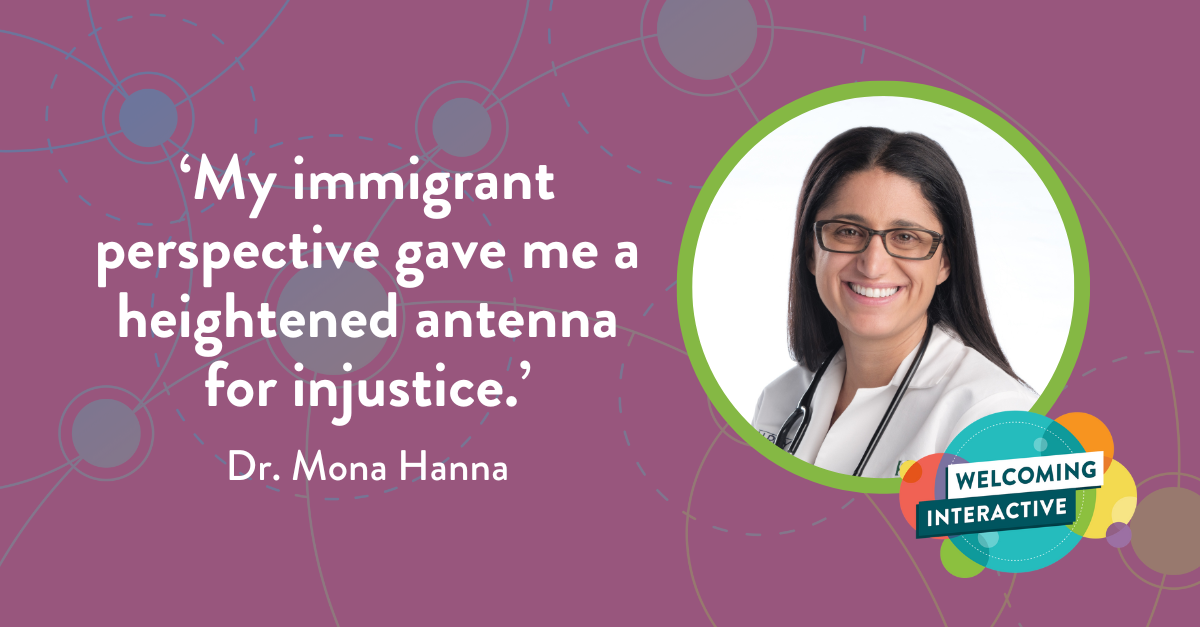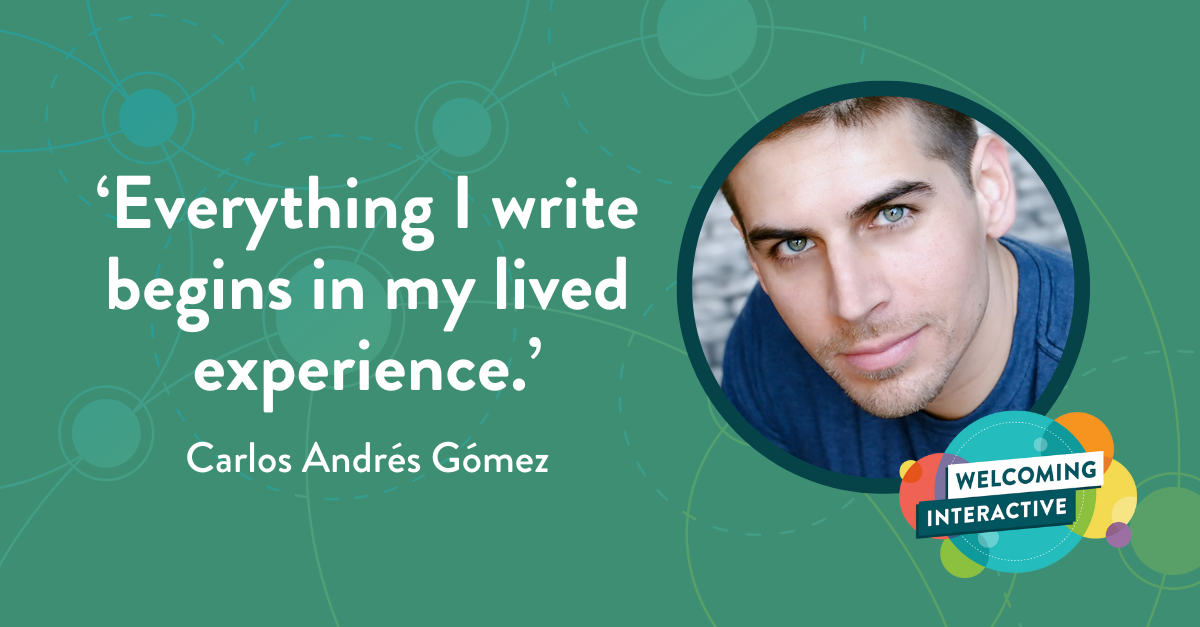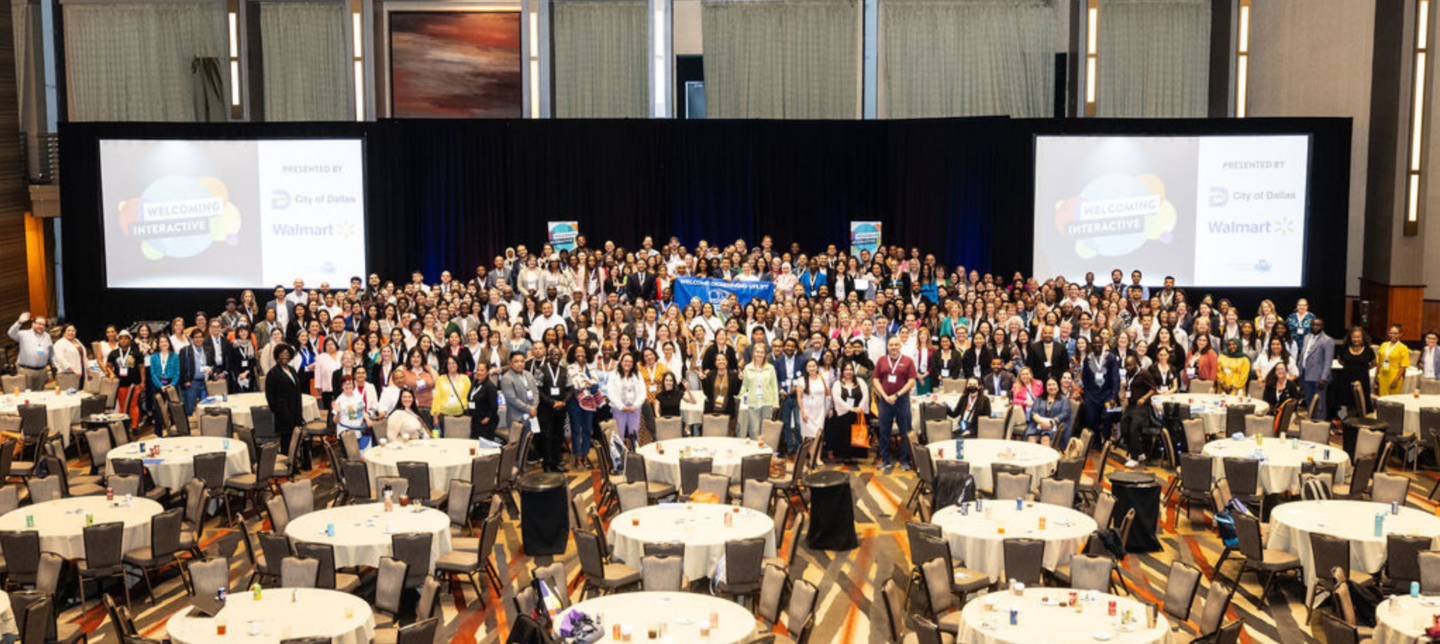
‘Welcoming is an American value’: Assistant Secretary Julieta Valls Noyes at the 2024 Welcoming Interactive
As we count down the days to the 2024 Welcoming Interactive, we’re getting excited thinking about the energy, learning, and connection that the conference sparks for attendees. The local communities and individuals on the frontlines of welcoming immigrants and refugees are the reason we gather. Sharing ideas and practices that leaders can bring home to build inclusive, thriving communities is at the heart of the Welcoming Interactive.
Before the conference begins in Dallas on April 10, we are thrilled to introduce one of our accomplished keynote speakers.
One of our plenaries on Thursday, April 11 will feature a keynote delivered by Ambassador Julieta Valls Noyes, Assistant Secretary of State for the Bureau of Population, Refugees, and Migration (PRM) at the U.S. Department of State. This year, we’re excited to share that Spanish interpretation will be available for attendees at all plenaries, including this keynote.
Noyes, a career member of the Senior Foreign Service, became Assistant Secretary of State for PRM on March 31, 2022. Previously, she served as Deputy Director and Acting Director of the Foreign Service Institute from 2018-2021. She was U.S. Ambassador to the Republic of Croatia from 2015-2017. From 2013-2015, she served as Deputy Assistant Secretary, Bureau of European and Eurasian Affairs.
A graduate of Wellesley College, Assistant Secretary Noyes has a master’s degree from the National Defense University. Her foreign languages are Spanish, Italian, Portuguese, and some French. Assistant Secretary Noyes is a first-generation American whose parents entered the United States from Cuba as refugees.
Read on for Assistant Secretary Noyes’ reflections as she gears up to share about the transformative work of welcoming refugees at the Welcoming Interactive. The following interview has been edited for clarity and length.
Without spoilers, what can we expect to hear from you at the Welcoming Interactive?
I’m really looking forward to joining you in Dallas this April. You’ll hear me describe how welcoming refugees is a long-standing American value that reflects our highest ideals: generosity, compassion, and volunteerism. People of all ages, beliefs, and backgrounds have told me that it is our duty as Americans to offer refuge to people fleeing persecution, genocide, and violence.
I will also talk about how the act of welcoming is something we share across backgrounds, ages, and communities. Long before we had a formal refugee resettlement program, small groups of private citizens all over the country – often organized and supported by faith-based organizations – led refugee resettlement efforts. When the Senate passed the Refugee Act of 1980 to create a permanent and systemic refugee admission program, they did so by a unanimous vote, enshrining refugee resettlement as a quintessential American value.
I’ll also highlight the Welcome Corps, the private sponsorship program that empowers groups of five adults to welcome newcomers into their communities. The Welcome Corps is a powerful example of how we’re responding to demand from private citizens to participate directly in welcoming refugees, setting them up to thrive and contribute to their new communities.
These private citizens know what those of us who have been doing this work have long understood: that resettlement makes America stronger and benefits our country, as refugees in turn make meaningful economic, cultural, and social contributions to the communities where they are resettled. Recently, the Department of Health and Human Services’ Office of Refugee Resettlement released a landmark, 15-year longitudinal study confirming that from 2005-2019, refugees contributed almost $124 billion to the growth of the U.S. economy. We have extensive data that show how significantly refugees enrich the places where they settle and our country as a whole.
As the daughter of refugees, how does your personal story drive your work?
Working on refugee resettlement and broader humanitarian diplomacy is a deeply personal priority for me. Like hundreds of thousands of people before them who arrived in America fleeing persecution and oppression, my parents came to the United States as refugees from Cuba, forced to flee the rise of the Castro regime.
Similar to many other first-generation American children of refugees, I chose to dedicate my life to public service to repay the debt of gratitude my parents made sure I understood we owe to this country.
Why are local communities so important in the broad story of migration?
Local communities and individuals are the backbone of welcome. My parents shared stories with us about the special people who helped them settle in and made it possible for our family to thrive. They arrived a couple of decades before the United States established the formal U.S. resettlement program, relying on the generosity of their neighbors for help as they built new lives here.
That’s one reason I’m so excited that we’ve launched the Welcome Corps. We have been inspired to see private sponsors stepping up from all walks of life across American society – including members of faith and civic groups, veterans, diaspora communities, businesses, colleges and universities, and other community organizations.
What suggestions do you have for the average person who wants to get involved in their community to foster welcoming and belonging for all?
Refugee resettlement is rewarding but challenging work. Many of us have moved somewhere new and know how daunting it can be to start over, even in our home country.
Anyone can be a part of this work. We hear from people across the country that in a time when it seems that we can’t turn on our TVs or scroll our phones without coming across a new crisis, the opportunity to help newly arrived refugees as a private citizen is a uniquely empowering and tangible way of making our country and our world a better place. Without exception, the sponsors I’ve spoken with have told me that participating in this program has positively impacted their own lives in ways they never imagined.
If you want to become familiar with the work of Assistant Secretary Noyes before the Welcoming Interactive, explore her work by:
- Visiting WelcomeCorps.org.
- Following Assistant Secretary Noyes, the State Department, or the Department’s Bureau of Population, Refugees, and Migration on X at @PRMAsstSec, @StatePRM, and @StateDept, and on Instagram at @StatePRM and @StateDept.
We can’t wait to see you in Dallas to hear from Assistant Secretary Noyes and other champions of welcoming next month! Check out all of the sessions and plenaries on the schedule.




